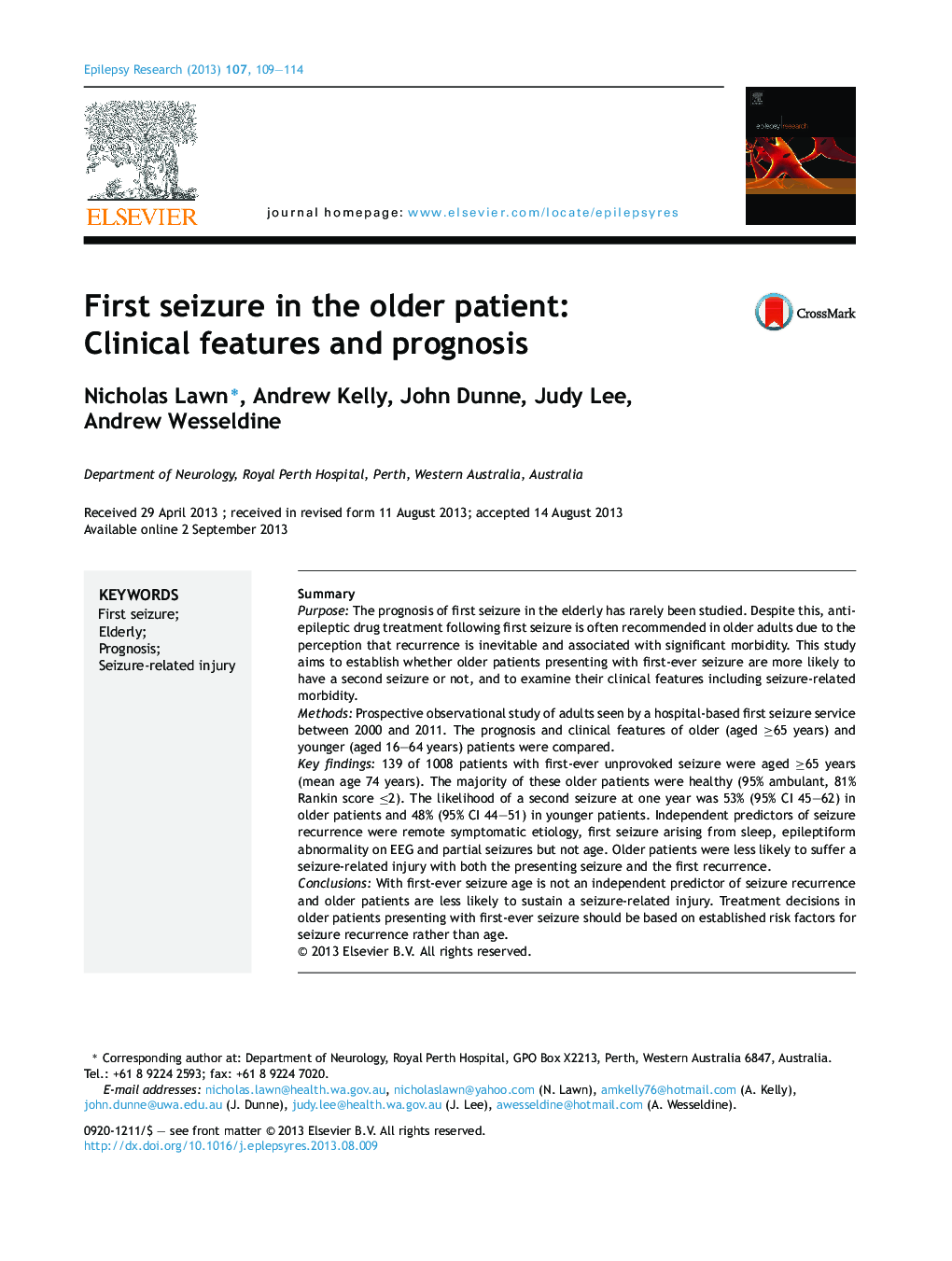| کد مقاله | کد نشریه | سال انتشار | مقاله انگلیسی | نسخه تمام متن |
|---|---|---|---|---|
| 6015848 | 1579915 | 2013 | 6 صفحه PDF | دانلود رایگان |
- We prospectively studied patients presenting with a first-ever seizure.
- The prognosis of older (â¥65 years) and younger (16-64 years) patients was compared.
- Age was not an independent risk factor for seizure recurrence.
- Older patients were less likely to suffer a seizure-related injury.
- Treatment decisions after first seizure should not be influenced by patient age.
SummaryPurposeThe prognosis of first seizure in the elderly has rarely been studied. Despite this, anti-epileptic drug treatment following first seizure is often recommended in older adults due to the perception that recurrence is inevitable and associated with significant morbidity. This study aims to establish whether older patients presenting with first-ever seizure are more likely to have a second seizure or not, and to examine their clinical features including seizure-related morbidity.MethodsProspective observational study of adults seen by a hospital-based first seizure service between 2000 and 2011. The prognosis and clinical features of older (aged â¥65 years) and younger (aged 16-64 years) patients were compared.Key findings139 of 1008 patients with first-ever unprovoked seizure were aged â¥65 years (mean age 74 years). The majority of these older patients were healthy (95% ambulant, 81% Rankin score â¤2). The likelihood of a second seizure at one year was 53% (95% CI 45-62) in older patients and 48% (95% CI 44-51) in younger patients. Independent predictors of seizure recurrence were remote symptomatic etiology, first seizure arising from sleep, epileptiform abnormality on EEG and partial seizures but not age. Older patients were less likely to suffer a seizure-related injury with both the presenting seizure and the first recurrence.ConclusionsWith first-ever seizure age is not an independent predictor of seizure recurrence and older patients are less likely to sustain a seizure-related injury. Treatment decisions in older patients presenting with first-ever seizure should be based on established risk factors for seizure recurrence rather than age.
Journal: Epilepsy Research - Volume 107, Issues 1â2, November 2013, Pages 109-114
